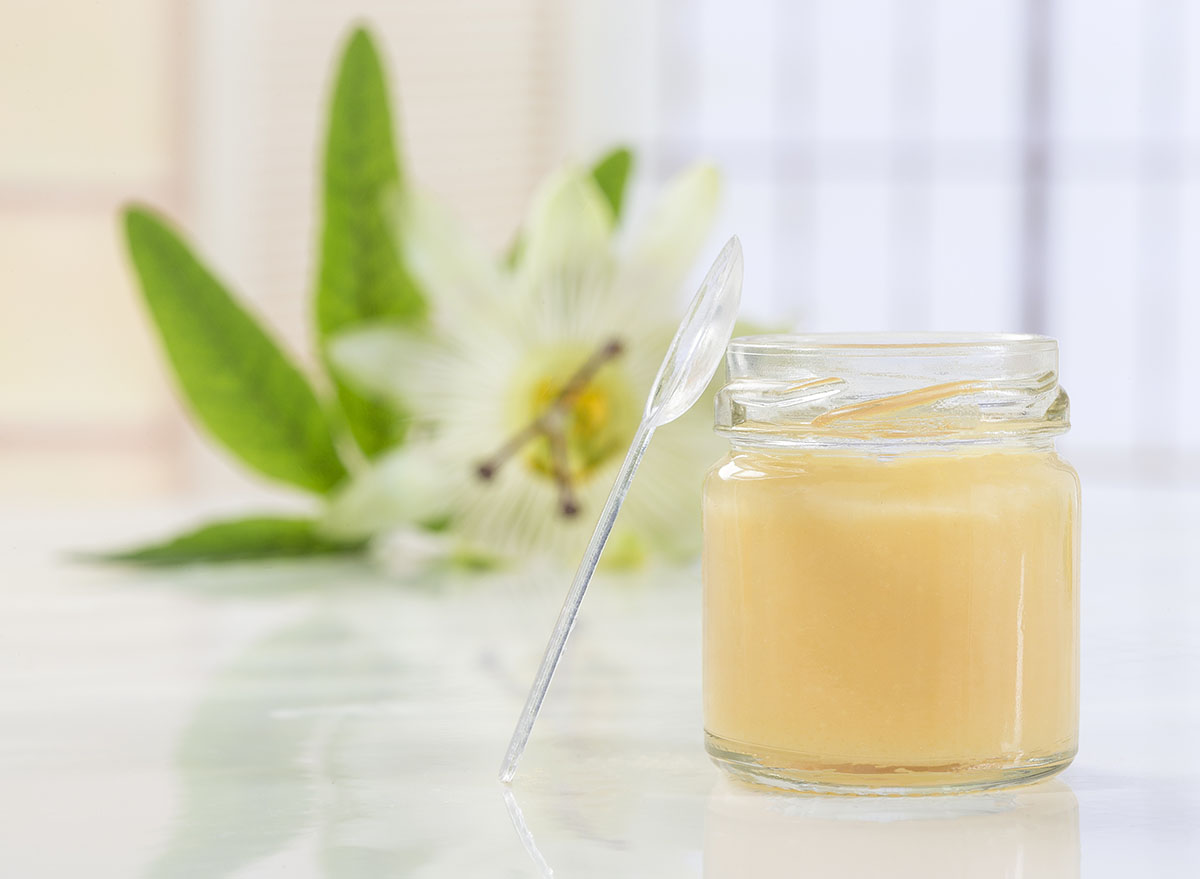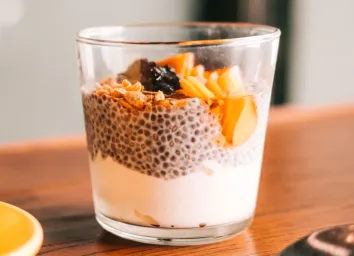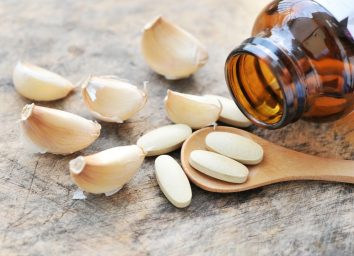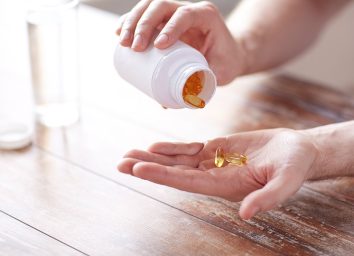What Is Royal Jelly, and What Are the Health Benefits?

In case you haven’t heard, bees keep the environment (for lack of a better term) buzzing. But aside from the fact that their pollination process keeps the circle of natural life intact by helping to fertilize food eaten by other living creatures and crops, these flying insects also produce substances that are widely beneficial to human health. There’s honey, which is packed with antioxidants; pollen, which boasts anti-inflammatory properties; and, the caviar of bee products, royal jelly.
But erase any mental picture of the fruity gelatin you spread on toast for breakfast, because royal jelly is much more than that. It is a divine milky substance secreted by bees and composed of proteins, lipids, vitamins, enzymes, and minerals. It is made to, first and foremost, act as an exclusive food source to queen bees and their newborns, Carly Stein, beekeeper and founder of BeeKeeper’s Naturals, says.
For humans, royal jelly is a natural supplement that may provide a wide range of antibacterial, antioxidant, and anti-inflammatory benefits. For those interested in adding royal jelly to their diet or beauty routine, here’s everything you should know about the supplement.
What are the health benefits of royal jelly?
Though more research is needed on the subject (and on humans, specifically), existing studies have found royal jelly to yield an array of health benefits.
Royal jelly can reduce PMS symptoms
During a 2014 study published in the journal Complementary Therapies in Medicine, 110 female medical students from Tehran University of Medical Sciences were instructed to either take one 1,000 mg royal jelly capsule or a placebo capsule every day throughout two consecutive menstrual cycles. The results showed that those who took royal jelly capsules experienced less severe PMS symptoms. Nicole Buratti, a certified pelvic floor specialist, diastasis recti specialist, and functional nutritionist who was not involved in the study, clarifies that the reason why royal jelly can help PMS is because it’s high in B-spectrum vitamins like thiamine (B1), riboflavin (B2), folic acid (B9), and biotin (B7), among others. “[B vitamins are] excellent for the nervous system and tissue repair, two areas I target with my fertility clients and my perimenopausal clients, especially those with PMS.”
RELATED: Your guide to the anti-inflammatory diet that heals your gut, slows the signs of aging, and helps you lose weight.
Royal jelly can improve red blood cell count
A 2012 study published in the journal Advanced Biomedical Research found that healthy volunteers between the ages of 42 and 83 years old who ingested 3,000 mg of royal jelly per day for six months had a higher red blood cell count than volunteers given a placebo.
Royal jelly could promote fertility
During a 2018 study published in the International Journal of Fertility & Sterility, it was found that royal jelly promotes the maturing of ovarian follicles as well as increases ovarian hormones in immature female rats. Though this study used animal subjects, it suggests the benefits for humans could be similar.
Royal jelly can help better manage symptoms of menopause
In a 2011 study on menopause, 120 menopausal women were divided into two groups: one was assigned to take a placebo capsule, the other two Lady 4 capsules—a supplement containing royal jelly, evening primrose oil, damiana, and ginseng—every day for four weeks. As a result, participants who had taken Lady 4 showed a significant improvement in their symptoms.
Royal jelly can act as a probiotic
Dr. Josh Axe, D.N.M., C.N.S., D.C., founder of Ancient Nutrition and DrAxe.com, and author of the best-selling book Keto Diet and the upcoming Collagen Diet, says that because royal jelly is a source of bifidobacteria, a kind of bacteria that supports the health of the gastrointestinal tract, it is considered a kind of probiotic. “Clinical studies have associated other beneficial effects, such as immune enhancement and anti-carcinogenicity, with the presence of bifidobacteria in the GI tract,” Axe says. “The unique composition of honey suggests that it could enhance the growth, activity, and viability of bifidobacteria in fermented dairy products.”
Royal jelly can help heal wounds
While honey is known for treating wounds, studies suggest royal jelly can also aid in wound healing, Axe says. He specifically references a 2010 study published in the Nutrition Research and Practice journal in which a superficial wound on human skin was treated by applying royal jelly to the wound in different concentrations. It was found that royal jelly significantly accelerated several wound-healing functions of our bodies. “Ultimately, the research demonstrated that royal jelly enhances the migration of fibroblasts, a cell in connective tissue that produces collagen and other fibers, and alters the levels of various lipids involved in the wound-healing process,” Axe explains.
Royal jelly might be able to treat diabetes
While more research on the subject is necessary before health professionals can definitively say that royal jelly can treat diabetes, Axe mentions that there have been a handful of studies that suggests it might improve type 2 diabetes markers. “In a randomized clinical trial, 40 patients with type 2 diabetes were assigned to receive either 10 grams fresh royal jelly or a placebo after overnight fasting,” he says. “Though the effects were not immediate and more studies are needed, there were some changes in glucose levels that may benefit type 2 diabetics, indicating that it may work as a natural treatment for diabetes.”
Are there any potential health risks to using royal jelly?
Nutritionist and candida diet expert Lisa Richards warns that anyone taking prescription or herbal blood thinners should speak to their doctor before implementing royal jelly into their diet as it “may increase the effects of blood thinners in the body, which can lead to increased bruising or bleeding.” What’s more, Physio Logic Clinical Nutritionist, Michelle Miller, MSACN adds that anyone with allergies to bee stings or pollen should stay clear of royal jelly and that, in rare cases, it can “induce asthma, anaphylaxis, and contact dermatitis.”
What forms does royal jelly come in?
“[Royal jelly] starts as a natural substance produced by the queen bee and then can be used for other health benefits and put into pills, liquids, and freeze-dried powder forms,” Stein says.
What are some guidelines for purchasing royal jelly?
Those who are interested in experimenting with royal jelly should look closely at where the product is being sourced—where it comes from, the farmers that are collecting the product, as well as the apiaries, explains Stein. “This will prevent you from getting any product where the bees have transferred pesticides and other foreign items into the hives,” she says.
Additionally, Stein notes that it is important to research the product itself, to make sure whatever you are using—be it a topical beauty product or ingestible supplement—is backed by science.
Bottom line: Should you give royal jelly a try?
As of right now, there haven’t been enough long-term studies done in humans to fully assess royal jelly’s health benefits. However, royal jelly has been shown to have great potential in animal studies and a handful of human studies, making it a promising source of healing and wellness properties in the areas of women’s reproductive health, diabetes, and wound recovery.
It is comprised of nutrients like unique proteins and fatty acids, and contains high levels of B-spectrum vitamins, which makes it highly nutritious.
If you’re interested in trying royal jelly, Megan Wong, a registered dietitian working with AlgaeCal, suggests speaking to your healthcare provider to see if it’s the right supplement for your body and goals.
The easiest way to add it to your diet is by taking it in capsule form. If you don’t mind the taste, Wong recommends spreading royal jelly on toast. You can also add it to tea or smoothies.








